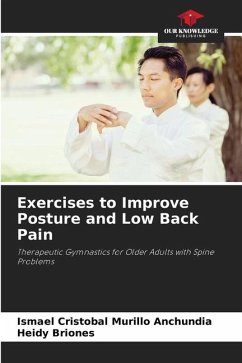
Health Promotion in Health Care - Vital Theories and Research
Versandkostenfrei!
Versandfertig in 6-10 Tagen
53,49 €
inkl. MwSt.

PAYBACK Punkte
0 °P sammeln!
This open access textbook represents a vital contribution to global health education, offering insights into health promotion as part of patient care for bachelor's and master's students in health care (nurses, occupational therapists, physiotherapists, radiotherapists, social care workers etc.) as well as health care professionals, and providing an overview of the field of health science and health promotion for PhD students and researchers.Written by leading experts from seven countries in Europe, America, Africa and Asia, it first discusses the theory of health promotion and vital concepts....
This open access textbook represents a vital contribution to global health education, offering insights into health promotion as part of patient care for bachelor's and master's students in health care (nurses, occupational therapists, physiotherapists, radiotherapists, social care workers etc.) as well as health care professionals, and providing an overview of the field of health science and health promotion for PhD students and researchers.
Written by leading experts from seven countries in Europe, America, Africa and Asia, it first discusses the theory of health promotion and vital concepts. It then presents updated evidence-based health promotion approaches in different populations (people with chronic diseases, cancer, heart failure, dementia, mental disorders, long-term ICU patients, elderly individuals, families with newborn babies, palliative care patients) and examines different health promotion approaches integrated into primary care services.
Thiseditedscientific anthology provides much-needed knowledge, translating research into guidelines for practice. Today's medical approaches are highly developed; however, patients are human beings with a wholeness of body-mind-spirit. As such, providing high-quality and effective health care requires a holistic physical-psychological-social-spiritual model of health care is required. A great number of patients, both in hospitals and in primary health care, suffer from the lack of a holistic oriented health approach: Their condition is treated, but they feel scared, helpless and lonely. Health promotion focuses on improving people's health in spite of illnesses. Accordingly, health care that supports/promotes patients' health by identifying their health resources will result in better patient outcomes: shorter hospital stays, less re-hospitalization, being better able to cope at home and improved well-being, which in turn lead to lower health-care costs.
This scientificanthology is the first of its kind, in that it connects health promotion with the salutogenic theory of health throughout the chapters. the authors here expand the understanding of health promotion beyond health protection and disease prevention. The book focuses on describing and explaining salutogenesis as an umbrella concept, not only as the key concept of sense of coherence.
Written by leading experts from seven countries in Europe, America, Africa and Asia, it first discusses the theory of health promotion and vital concepts. It then presents updated evidence-based health promotion approaches in different populations (people with chronic diseases, cancer, heart failure, dementia, mental disorders, long-term ICU patients, elderly individuals, families with newborn babies, palliative care patients) and examines different health promotion approaches integrated into primary care services.
Thiseditedscientific anthology provides much-needed knowledge, translating research into guidelines for practice. Today's medical approaches are highly developed; however, patients are human beings with a wholeness of body-mind-spirit. As such, providing high-quality and effective health care requires a holistic physical-psychological-social-spiritual model of health care is required. A great number of patients, both in hospitals and in primary health care, suffer from the lack of a holistic oriented health approach: Their condition is treated, but they feel scared, helpless and lonely. Health promotion focuses on improving people's health in spite of illnesses. Accordingly, health care that supports/promotes patients' health by identifying their health resources will result in better patient outcomes: shorter hospital stays, less re-hospitalization, being better able to cope at home and improved well-being, which in turn lead to lower health-care costs.
This scientificanthology is the first of its kind, in that it connects health promotion with the salutogenic theory of health throughout the chapters. the authors here expand the understanding of health promotion beyond health protection and disease prevention. The book focuses on describing and explaining salutogenesis as an umbrella concept, not only as the key concept of sense of coherence.














